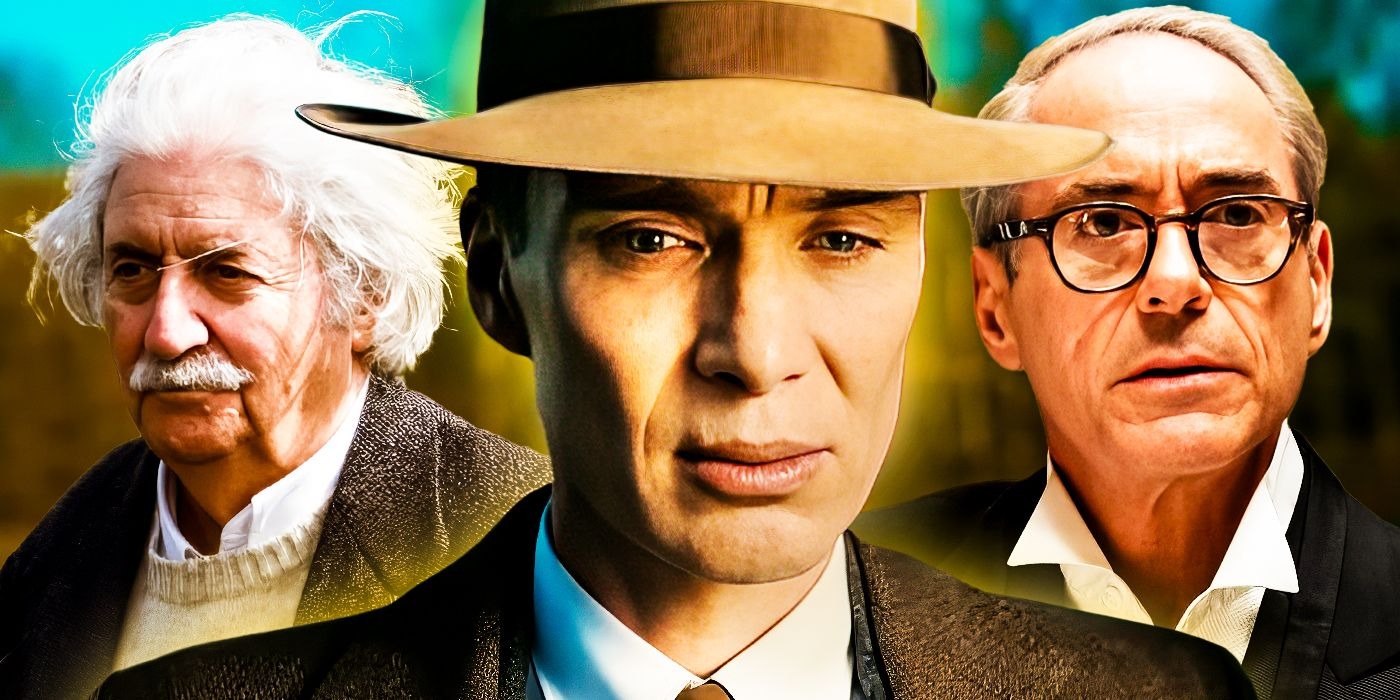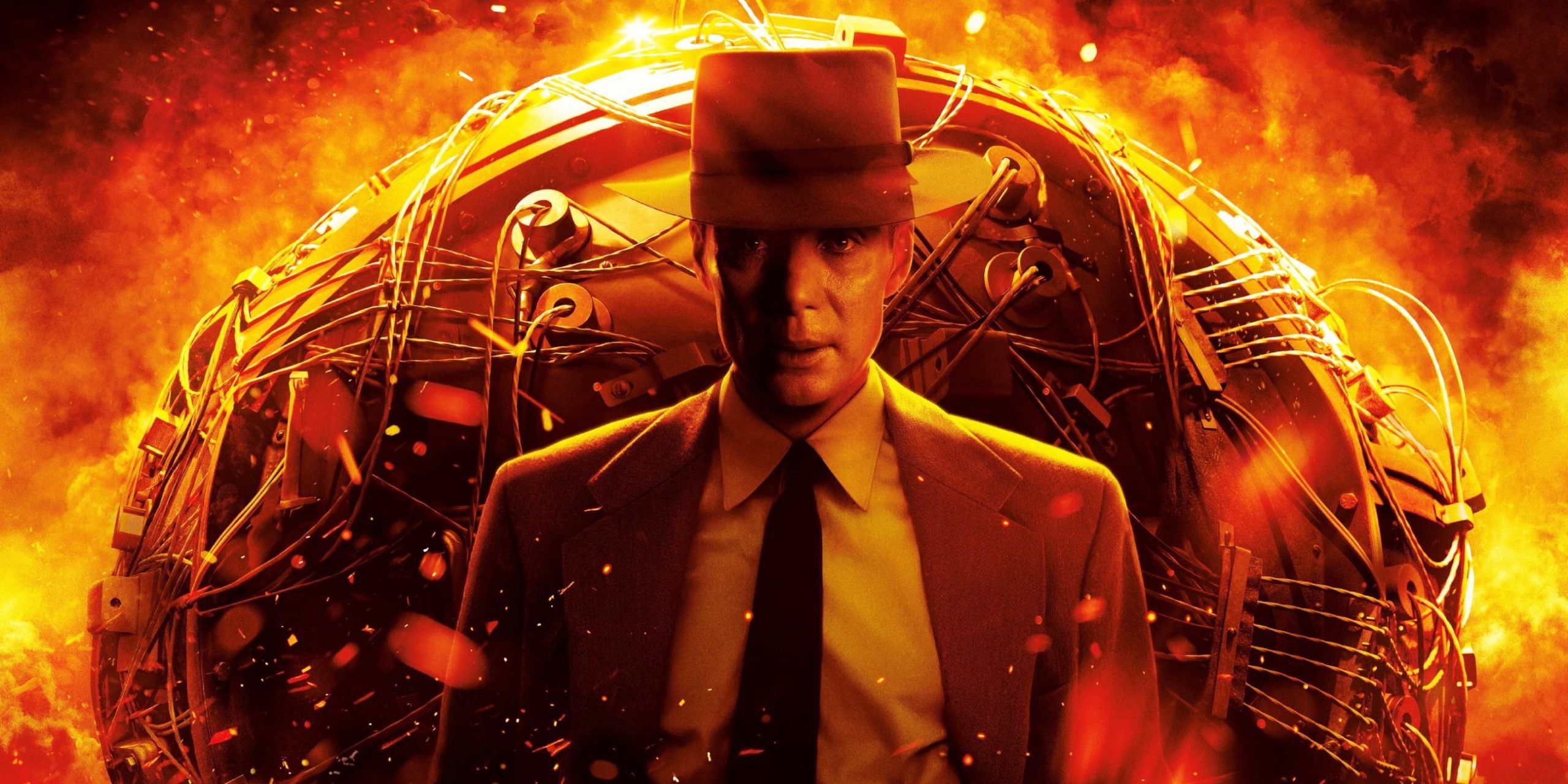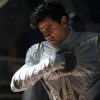Physicist J. Robert Oppenheimer’s wife, Kitty, once asked a deep question that lingers at the end of the film — whether or not the world can forgive Oppenheimer for the part he played in the creation of the atomic bomb. Christopher Nolan does the writing and directing of the movie.
The story takes us through Oppenheimer’s life, portrayed by Cillian Murphy, covering the crucial moments from the period he worked on the atomic bomb project used on Hiroshima and Nagasaki, down to the U.S. government hearing that eventually led to him losing his security clearance.

As the film approaches its final moments, it returns to the private discussion between Oppenheimer and Albert Einstein. This scene comes after Oppenheimer’s security clearance has been taken away, and Strauss has been rejected by the Senate in his bid to become Secretary of Commerce.
During their talk, Einstein suggests that once Oppenheimer has suffered enough punishment from the world, they’ll give him awards and pretend to forgive him — but that forgiveness won’t be for his benefit. Oppenheimer, on his part, confesses that the chain reaction that could destroy the world has already started.
This revelation unsettles Einstein, who then walks away. At that point, Oppenheimer mentally pictures the Earth being destroyed by nuclear war.
How Strauss & Oppenheimer’s Hearings Reflect Their Rivalry
The animosity Lewis Strauss had for Oppenheimer was personal and deeply rooted. Oppenheimer had once embarrassed Strauss in public by mocking his remarks on radioisotopes during a hearing. Feeling belittled, Strauss decided to get back at him.
He wasn’t interested in remaining head of the Atomic Energy Commission if Oppenheimer would still have the power to shape national policies concerning nuclear weapons — especially since they held opposite views on the issue.
Much of Strauss’ motivation came from spite, and Nolan’s decision to draw a parallel between their hearings gave a strong sense of tension between their opposing ideals, offering viewers a dual perspective. Although Strauss managed to damage Oppenheimer’s professional life, his efforts to secure a cabinet position also failed.
Opposition came from several corners — other scientists and many within the Democratic Party, including John F. Kennedy, who later contributed to efforts aimed at restoring Oppenheimer’s damaged reputation. Their contrasting hearings also pointed to Oppenheimer’s change in position concerning nuclear arms.
At one point, he had supported the hydrogen bomb’s development, but he later stood against it, pushing instead for peaceful solutions regarding nuclear issues.
Oppenheimer’s Regret Focused On Use, Not Creation
Even though Oppenheimer didn’t express remorse for building the atomic bomb, he didn’t see the invention as something good. He fulfilled the assignment he was given, but he described it as a necessary evil (as highlighted in Smithsonian Magazine), and he frequently warned against the use of such powerful weapons.
His concerns eventually shifted in that direction. Though Kitty often encouraged him to defend himself, Oppenheimer decided not to. He allowed himself to fall out of favor — possibly as a way to earn forgiveness for both his involvement with the communist party and for being part of the atomic bomb project — with hopes of preserving his security clearance.
What Oppenheimer And Einstein’s Final Exchange Represents
The conversation that took place in 1947 between Oppenheimer and Einstein, as shown in the movie’s final part, highlights the similar paths both men had taken in life. Oppenheimer realizes this talk — that building the atomic bomb started a chain reaction that triggered an arms race beyond his control.
Einstein then confesses that he no longer understands the full scope of the scientific changes he helped begin. His remark refers to how his theory of relativity contributed to the birth of quantum mechanics, which eventually made the atomic bomb possible.
Einstein then says Oppenheimer will be celebrated with medals once society believes he has been punished enough — but that recognition would only serve to ease their guilt. This also includes people like Edward Teller, played by Benny Safdie, who turned against Oppenheimer during the security hearings.
These two scientists had more in common than it seemed; they were simply at different points in their careers, while the consequences of their scientific discoveries were already far-reaching. Once things were set in motion, both men could only watch the outcome from a distance — they were no longer in control.
What Made Teller Betray Oppenheimer At The Hearing
The security hearings that involved Oppenheimer shifted direction when several of his former colleagues were called in to testify, with many of them speaking against him. One of the testimonies that made a real difference came from Edward Teller, whose statement was the final one heard by the committee.
His comment, saying that Oppenheimer’s approach seemed confusing and complicated, contributed to the revocation of Oppenheimer’s security clearance. While Teller’s betrayal deeply upset Kitty, Oppenheimer still shook hands with him at the end of the hearing.
That handshake was repeated years later when Oppenheimer was presented with the Enrico Fermi Award. Teller’s reason for going against Oppenheimer lies in what he said during his testimony. Their major disagreement was rooted in their different views on nuclear development, which led to a certain level of distrust.
Teller admitted that he preferred the future of America’s nuclear interest to be in hands he understood better — and trusted more. Though he later expressed regret over what he had done, his decisions were influenced by personal interests and what he believed was best for the nation and scientific community.
What Oppenheimer’s Final Vision Of Earth’s Destruction Means
The very last scene of the film shows a world devastated by nuclear warfare. In Oppenheimer’s mind, he visualizes the destruction that could happen, based on the path his invention had set humanity on. The scene also includes raindrops falling on a pond, just like what was seen at the start of the movie.
This moment seems to hint at his thoughts about quantum physics — seeing each raindrop as an atom, small but powerful. The force of a nuclear blast is like seeing the quantum world blown up to a terrifying scale. What Oppenheimer feared in his early days eventually became a terrifying reality; the atomic bomb was only the beginning of something far worse.
Where Oppenheimer Ended Up After The Movie’s Timeline
Following the revocation of his security clearance, Oppenheimer took a step back from the spotlight and relocated with his family to St. John in the Virgin Islands. Even though he kept on giving public lectures, he became more vocal about the potential dangers linked to scientific discoveries and their misuse.
Alongside Einstein and a few other scientists, he co-founded The World Academy of Art and Science. He was also appointed director at the Institute for Advanced Study in Princeton starting in 1947. Oppenheimer later published a book that featured some of his talks, focusing on his concerns about politics influencing science.
However, unlike some of his peers, he never openly condemned the development of nuclear weapons. The hearing might have made him more reserved in his public statements. Despite being pushed out of political relevance, Oppenheimer didn’t stop contributing to scientific conversations.
In 1963, President John F. Kennedy arranged for him to be awarded the Enrico Fermi Award, honoring his role during the war. Two years later, in 1965, he was diagnosed with throat cancer and died in February 1967. His impact was long-lasting, but the damage done to his public image never fully healed during his lifetime.
How Nolan’s Ending Matches Up With What Happened
Oppenheimer’s life story is represented with a good level of accuracy throughout the film, including how things ended. Still, the particular exchange between Einstein and Oppenheimer is one detail that the movie most likely added for dramatic and thematic reasons.

There’s no available record of what they discussed, but they were known to be friendly, so such a conversation could have happened. Even if it didn’t, the scene supports the ideas Nolan was trying to bring out.
Other parts of the story, such as Kitty refusing to shake Teller’s hand and Kennedy’s involvement in blocking Strauss’ nomination, were true to historical accounts. Since so many of these facts are documented, Nolan’s commitment to keeping them intact helped ground the movie in realism — something that’s felt right up to the end.
What Oppenheimer’s Ending Says About Forgiveness
J. Robert Oppenheimer earned the title “Father of the Atomic Bomb,” but the rewards that came with that role eventually faded. His friends turned against him, he was branded a traitor and even his relationship with Jean Tatlock came under scrutiny during the security hearings.
Public shame followed, and his reputation never fully recovered. No matter what he achieved or the fact that he stayed silent through much of the trial, Kitty said the world would never forgive him for what happened in Hiroshima and Nagasaki.
Although he later stood against nuclear programs and warned about the hydrogen bomb, President Truman brushed his concerns aside. The damage had already been done. Nolan’s Oppenheimer doesn’t try to take sides.
Instead, it studies the life of a man whose dreams were used for political purposes — a man who had his flaws too. His feelings were a mix of wonder and regret, and the movie never tries to paint him as purely heroic, though it allows us to see things from his view.
Whether the world will ever forgive Oppenheimer is still a question with no clear answer. The U.S. Department of Energy’s decision in 2022 to cancel the 1954 ruling against him shows that the American government may have had a change of heart.
But does that reflect how the entire world feels? That depends on who you ask. The effects of the atomic bomb, including the 200,000 lives lost and the global arms race that followed, are still being felt. Though he later became a voice for peace, Oppenheimer’s story remains a warning for future generations.



